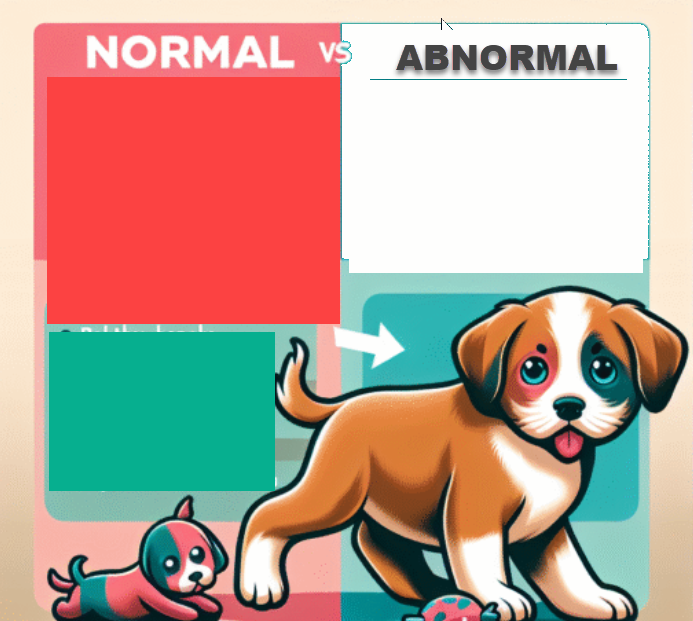Newborn Stage (0-2 Weeks)
Sensory Development Overview
In the initial weeks of life, puppies are in a delicate stage of sensory development. At birth, their senses are quite limited. Their eyes and ears are closed, relying heavily on touch and smell to navigate their immediate environment. This phase is crucial for developing initial sensory capabilities.
Importance of Maternal Bonding
Maternal bonding plays a significant role in the newborn stage. Puppies rely on their mother for nutrition and warmth, forming a primary attachment that is vital for their emotional and physical growth. The mother’s presence establishes a sense of security and aids in strengthening the immune system through her milk.
Basic Motor Skills and Reflexes
Even at this early age, puppies exhibit basic motor skills and reflexes. These include rooting for feeding and the neonatal reflex of curling up into a ball when picked up. Such movements are necessary for survival and serve as the foundation for more complex motor skills in later stages.
Transitional Stage (2-4 Weeks)
Development of Senses
Between the second and fourth week, puppies undergo significant sensory development. Their eyes begin to open around the two-week mark, revealing a new world to explore. Hearing also starts to develop, allowing them to react to sounds, and their sense of smell becomes more acute.
Beginning of Social Interaction
This stage marks the beginning of social interaction among littermates. Puppies start to engage in mild play, which fosters social skills and establishes hierarchies within the group. These early encounters set the groundwork for future social behavior.
Introduction to Basic Coordination
As their senses sharpen, puppies also begin to develop basic coordination skills. They start moving more freely, albeit clumsily, exploring their surroundings with newfound curiosity. This period is essential for laying the groundwork for more complex movements.
Socialization Period (4-12 Weeks)
Critical Learning Period
The socialization period is a critical learning phase for puppies. According to Dr. Ian Dunbar, a renowned veterinarian and canine behaviorist, “Puppies must be socialized before they are 12 weeks of age. Well socialized pups are easier to train and have fewer behavior problems.”
Development of Social Skills
During this time, puppies develop essential social skills through interaction with both humans and other animals. Exposing them to a wide range of individuals and friendly animals helps in building a balanced personality.
Introduction to Experiences and Environments
This phase also involves the introduction to various experiences and environments. Puppies should gradually be exposed to different sounds, sights, and surfaces. Such early exposure helps prevent fear and anxiety-related behaviors later in life.
Juvenile Stage (3-6 Months)
Rapid Brain Development
The juvenile stage is characterized by rapid brain development and enhanced cognitive abilities. Puppies begin demonstrating improved problem-solving skills and exhibit more curious behavior. During this time, they are highly receptive to learning new commands and tricks.
Formation of Behavioral Patterns
Behavioral patterns begin to solidify during these months. Consistent reinforcement of positive behaviors is pivotal to ensure that puppies grow into well-behaved adults. Owners should focus on patience and consistency.
Importance of Training
Training becomes crucial during the juvenile phase. Puppies are adept at learning through positive reinforcement, making this the ideal time for basic obedience training. Combining training with play ensures that learning remains fun and engaging.
Adolescent Stage (6-12 Months)
Refinement of Skills
In the adolescent stage, puppies refine their learning and social skills. While they continue to exhibit puppy-like enthusiasm, they also start adhering to learned behaviors. This refinement is essential for mature social interactions.
Increasing Independence
Puppies often show increased independence between six to twelve months. They tend to explore more autonomously, and their personalities become more pronounced. It’s crucial for owners to balance this newfound independence with guidance.
Behavioral Challenges
Adolescence can bring about challenges such as stubbornness and selective hearing. Owners may notice testing of boundaries, requiring reinforcement of training and social interaction to keep the puppy well-adjusted.
 Brain Development Factors
Brain Development Factors
Nutrition and Health
A balanced diet is a cornerstone of healthy brain development. Puppies require nutrition rich in essential fatty acids, vitamins, and proteins to support cognitive and physical growth. Proper veterinary care also ensures optimal health and development.
Environmental Enrichment
Environmental enrichment, including toys and engaging activities, stimulates a puppy’s brain. A stimulating environment promotes learning and reduces the likelihood of developing behavior issues. Providing diverse stimuli can enhance cognitive prowess.
Genetics and Breed Differences
Genetic factors and breed differences significantly influence brain development. Some breeds may develop faster or exhibit different behavioral traits. Understanding a puppy’s specific needs based on their genetic heritage can guide owners in providing better care.
Tips for Supporting Brain Development
Balanced Diet
Ensure your puppy receives a balanced diet tailored to their developmental needs. Foods enriched with omega-3 fatty acids are particularly beneficial for brain health.
Consistent Training and Socialization
Regular, consistent training combined with socialization activities aids significantly in brain development. Such practices help reinforce learning and adaptability.
Mental Stimulation Exercises
Engaging your puppy in mental stimulation exercises, such as puzzle toys or training games, can enhance their cognitive abilities and keep them mentally active.
Common Myths and Misconceptions
Clarification of Myths
Several myths, such as the idea that puppies can’t learn complex commands, need debunking. Puppies are capable of remarkable learning feats when approached with the right techniques.
Evidence-Based Information
Research indicates that early experiences positively impact brain development. Exposing puppies to varied environments contributes to a resilient and adaptable disposition.
Conclusion
Puppy brain development is a fascinating journey marked by various stages, each vital in shaping a mature and balanced dog. From the newborn stage to adolescence, every phase contributes uniquely. Supporting a puppy’s development with nutrition, training, and stimulation is integral to fostering a thriving adult dog. Responsible pet ownership requires informed decision-making and dedication to continued learning.
Additional Resources
Suggested Reading
For more on puppy development, consider “Before and After Getting Your Puppy” by Dr. Ian Dunbar, a leading figure in dog training and behavior.
Reputable Organizations
Explore resources from the American Veterinary Society of Animal Behavior, offering insights and guidelines on puppy socialization and training programs.
Puppy Brain Development FAQs
What role does maternal bonding play in a puppy’s brain development?
Maternal bonding is crucial for a puppy’s early development. In the newborn stage, the bonding process with the mother ensures that puppies receive proper nutrition and warmth, which is critical for their physical and emotional growth. This early attachment helps build a sense of security and is essential for their immune system, aided by the antibodies found in the mother’s milk. Without this crucial bonding, puppies may face challenges in terms of social and emotional development.
How important is socialization in the early weeks of a puppy’s life?
Socialization between 4-12 weeks is a pivotal part of a puppy’s development, often referred to as the critical learning period. During this time, puppies are highly receptive to learning social cues and developing interactions with both humans and other animals. Engaging them with a variety of environments and experiences helps prevent future anxiety and fear-based behaviors. Well-socialized puppies are generally easier to train and integrate into new settings as they mature.
What are some effective ways to stimulate a puppy’s brain development?
To effectively stimulate a puppy’s brain development, owners should provide a mix of physical, social, and mental activities. Introducing interactive toys and puzzles can help nurture cognitive abilities. Consistent socialization with people and other puppies enriches their learning of social cues and skills. Furthermore, obedience training sessions that incorporate positive reinforcement methods enhance their problem-solving skills and ensure a well-rounded development.
How does nutrition affect a puppy’s brain development?
Nutrition plays a fundamental role in a puppy’s overall growth, particularly for brain development. A balanced diet rich in essential fatty acids, such as omega-3, supports cognitive health and brain function. Proteins and vitamins are also necessary for physical growth and maintaining optimal health. Regular veterinary check-ups ensure that puppies receive the necessary nutrients to support both brain and body development throughout these critical stages.
What are some common misconceptions about puppy brain development?
A common misconception about puppy brain development is the belief that puppies can’t learn complex tasks during their early stages. On the contrary, puppies are highly capable learners, particularly when training is presented in an engaging and consistent manner. Another myth is that specific breeds inherently have behavioral issues when, in reality, each puppy’s behavior depends on a combination of genetics and their upbringing, conditioning, and training environments.
Why is the juvenile stage critical for training and behavioral reinforcement?
The juvenile stage, from 3 to 6 months, is marked by rapid brain development, which makes it an ideal period for training and behavior reinforcement. Puppies at this age are keen learners and can absorb new commands and tricks with ease. Consistent positive reinforcement helps solidify good behaviors into patterns that they’ll carry into adulthood. Owners who focus on structured training during this stage often find that their puppies grow into well-adjusted adult dogs.


 Brain Development Factors
Brain Development Factors





